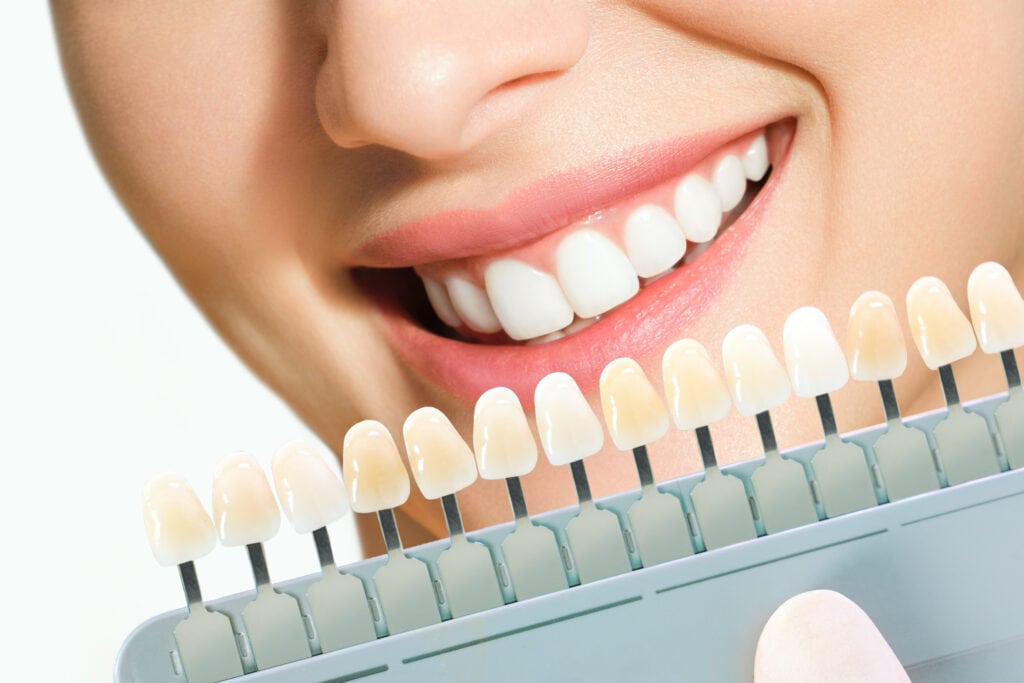Are Dental Veneers a Good Choice for Sensitive Teeth? Find Out Here

Strong 8k brings an ultra-HD IPTV experience to your living room and your pocket.
Many people with sensitive teeth often wonder whether dental veneers are a suitable solution for them. If you’re considering dental veneers in Dubai, it’s important to understand how they interact with sensitive teeth and whether they’re the right option for you. This comprehensive guide will explore the benefits and potential drawbacks of veneers for those with dental sensitivity.
Understanding Tooth Sensitivity:
Tooth sensitivity occurs when the enamel on your teeth is worn down or your gums recede, exposing the dentin layer underneath. This can cause discomfort when eating hot, cold, or sweet foods and drinks. Common causes of tooth sensitivity include:
Enamel erosion: Due to acidic foods and beverages
Gum recession: Caused by periodontal disease or aggressive brushing
Tooth decay: Cavities exposing the inner layers of teeth
Grinding or clenching: Leading to enamel wear
How Dental Veneers Address Tooth Sensitivity:
Dental veneers can help reduce tooth sensitivity in some cases by covering the exposed dentin. Here’s how they work:
Protective layer: Veneers act as a protective shield over the sensitive areas of your teeth.
Restoration of enamel: By covering worn or damaged enamel, veneers help reduce discomfort from external stimuli.
Cosmetic enhancement: Along with addressing sensitivity, veneers improve the overall appearance of your smile.
Situations Where Veneers Can Help:
Mild to moderate sensitivity: Veneers can be effective in reducing sensitivity caused by minor enamel erosion.
Cosmetic concerns: If you want to improve your smile while addressing sensitivity, veneers offer a dual benefit.
When Veneers Might Not Be Suitable:
While veneers can help many people with sensitive teeth, they’re not always the right solution. Here are some instances where they may not be ideal:
Severe sensitivity: If your sensitivity is due to underlying dental issues such as cavities or gum disease, these must be treated first.
Weak teeth: Veneers require a certain amount of healthy tooth structure for bonding.
Bruxism (teeth grinding): This can damage veneers over time unless a night guard is used.
The Process of Getting Dental Veneers:
If you’ve decided that veneers are the right choice for your sensitive teeth, here’s what you can expect during the process:
Step 1: Consultation:
Discuss your goals: Your dentist will evaluate your teeth and discuss your smile goals.
Examine sensitivity causes: The dentist will determine the cause of your sensitivity and whether veneers are appropriate.
Step 2: Preparation:
Enamel removal: A thin layer of enamel is removed to make space for the veneers.
Impressions: Molds of your teeth are taken to create custom veneers.
Step 3: Placement:
Temporary veneers: Temporary veneers may be placed while your permanent ones are being made.
Final bonding: Once ready, the permanent veneers are bonded to your teeth with a special adhesive.
Benefits of Dental Veneers for Sensitive Teeth:
There are several advantages to choosing veneers if you have tooth sensitivity:
Reduced sensitivity: Veneers cover exposed dentin, reducing sensitivity to hot, cold, and sweet foods.
Improved appearance: Achieve a whiter, more even smile.
Long-lasting results: Veneers can last for many years with proper care.
Long-Term Care Tips for Veneers:
To ensure your veneers last and continue to reduce sensitivity, follow these care tips:
Maintain good oral hygiene: Brush and floss daily to prevent plaque buildup.
Avoid hard foods: Prevent damage to your veneers by avoiding overly hard or sticky foods.
Use a night guard: If you grind your teeth, wear a night guard to protect your veneers.
Visit your dentist regularly: Routine check-ups will ensure your veneers remain in excellent condition.
Frequently Asked Questions About Veneers and Sensitivity:
Can veneers eliminate sensitivity completely?
While veneers can significantly reduce sensitivity, they may not eliminate it entirely, especially if there are underlying dental issues.
Are veneers painful to get?
The procedure is generally not painful. Local anesthesia is used during the enamel removal process to ensure comfort.
How long do veneers last?
With proper care, veneers can last between 10 to 15 years or even longer.
Why Choose Dental Veneers in Dubai:
Dubai is a top destination for cosmetic dentistry, offering advanced procedures and world-class care. Here’s why getting veneers in Dubai is a great choice:
Highly experienced dentists: Benefit from the expertise of skilled cosmetic dentists.
State-of-the-art clinics: Dubai’s dental clinics use the latest technology for optimal results.
Personalized care: Enjoy customized treatment plans tailored to your needs.
Final Thoughts on Veneers for Sensitive Teeth:
If you’re considering dental veneers in Dubai to address tooth sensitivity, it’s essential to consult with a qualified dentist to determine if they’re right for you. Veneers can provide both functional and cosmetic benefits, helping you achieve a beautiful, pain-free smile. By understanding the process and long-term care requirements, you can make an informed decision and enjoy the confidence that comes with a perfect smile.
Readmore about: What to Expect Before, During, and After Getting Dental Veneers
Note: IndiBlogHub features both user-submitted and editorial content. We do not verify third-party contributions. Read our Disclaimer and Privacy Policyfor details.







